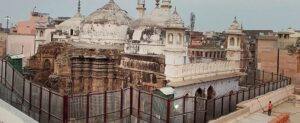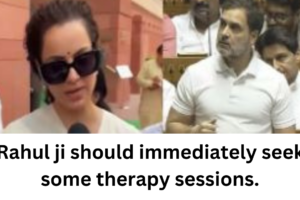
The Gyanvapi Masjid of Varanasi is a mosque that has a long and contentious history. It is located in the heart of the city, next to the Kashi Vishwanath Temple, one of the most sacred Hindu shrines. The mosque was built by the Mughal emperor Aurangzeb in 1669, after he demolished the original temple that stood on the site. The mosque has been a source of dispute and conflict between Hindus and Muslims ever since, as both communities claim ownership and rights over the land.
The original temple was dedicated to Shiva, the Hindu god of destruction and regeneration. It was known as Vishweshwar, meaning “the lord of the world”. According to Hindu tradition, the temple was founded by Lord Brahma, the creator god, and was one of the twelve Jyotirlingas, or manifestations of Shiva’s power. The temple was also a center of learning and scholarship, attracting pilgrims and scholars from across India and beyond. The temple was destroyed and rebuilt several times by different invaders, such as the Ghurids, the Delhi Sultanate, and the Sharqi dynasty. The temple that Aurangzeb demolished was constructed by Raja Todar Mal, a minister of Akbar, the great Mughal emperor who was known for his religious tolerance and patronage of art and culture.
Aurangzeb, however, was a devout Muslim who wanted to establish Islamic law and supremacy in his empire. He ordered the destruction of many Hindu temples and idols, and imposed heavy taxes on non-Muslims. He also banned music, dancing, painting, and other forms of art that he considered un-Islamic. He built the Gyanvapi Mosque on the ruins of the Vishweshwar Temple, using some of the materials from the temple. The mosque has three domes and two minarets, and is adorned with verses from the Quran. The name Gyanvapi means “the well of knowledge”, and refers to a well that is located within the mosque complex. According to some accounts, Aurangzeb threw the original Shiva lingam, or symbol of Shiva, into the well.
The mosque has been a site of controversy and violence ever since its construction. In 1742, a Maratha ruler named Malhar Rao Holkar attacked Varanasi and tried to rebuild the temple on the site of the mosque. He was stopped by Nawab Safdarjung, the governor of Awadh, who defended the mosque. In 1780, another Maratha ruler named Mahadji Scindia built a new temple adjacent to the mosque, which is now known as the Kashi Vishwanath Temple. The temple and the mosque coexisted peacefully for some time, until the British colonial rule brought new tensions and conflicts. In 1809, a riot broke out between Hindus and Muslims over access to the Gyanvapi well. The British intervened and erected a wall between the temple and the mosque to prevent further clashes.
In independent India, the dispute over the mosque has continued to simmer. In 1983, a Hindu group called Vishwa Hindu Parishad (VHP), or World Hindu Council, filed a lawsuit in a local court seeking permission to worship at the original site of the temple within the mosque complex. The VHP claimed that there were remnants of the temple inside the mosque, such as pillars, arches, and carvings. The VHP also argued that the mosque was built illegally on Hindu land, and violated a law that prohibits conversion of places of worship. The lawsuit was dismissed by the court in 1991, but was revived in 2019 by another Hindu group called Akhil Bharatiya Akhara Parishad (ABAP), or All India Association of Monastic Orders. The ABAP filed a petition in a different court asking for a survey of the mosque to ascertain its historical and archaeological status.
In April 2021, the court ordered a survey of the mosque by a team of experts from various fields. The court also allowed video recording of the survey process. The order sparked protests from Muslim groups who opposed any interference with their place of worship. They challenged the order in the Supreme Court of India, which stayed the survey until further notice. The Supreme Court also said that it would protect the mosque and ensure that prayers continue there.
The Gyanvapi Masjid dispute is one of many such cases in India where religious sentiments clash with historical facts and legal norms. It reflects the deep-rooted divisions and mistrust between Hindus and Muslims in India, which have often led to violence and bloodshed. It also raises questions about how to preserve and respect India’s diverse cultural heritage without compromising its secular constitutional values.
Muslim society should step forward and offer a solution for a “historical mistake”, Uttar Pradesh Chief Minister Yogi Adityanath has said referring to the Gyanvapi mosque dispute
Please watch my youtube clip on the latest news about Yogi Adityanath`s views on Gyanvapi :









